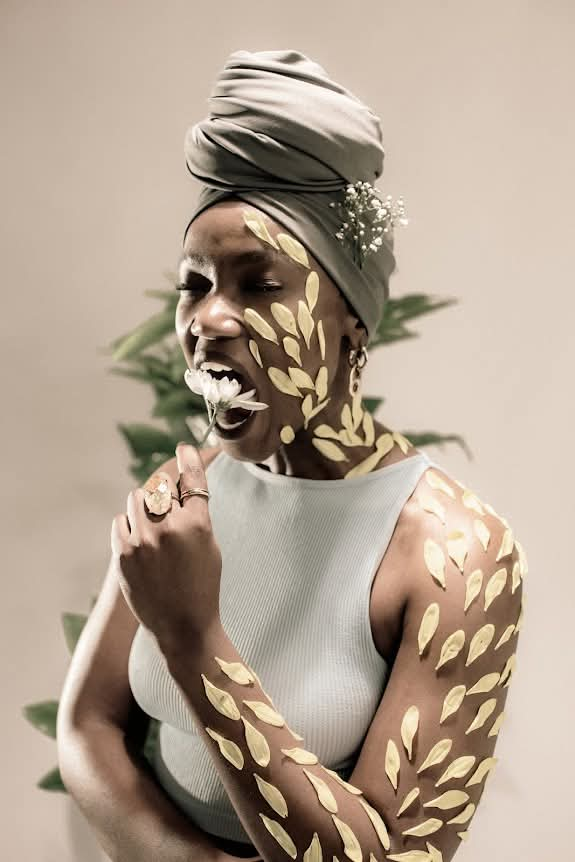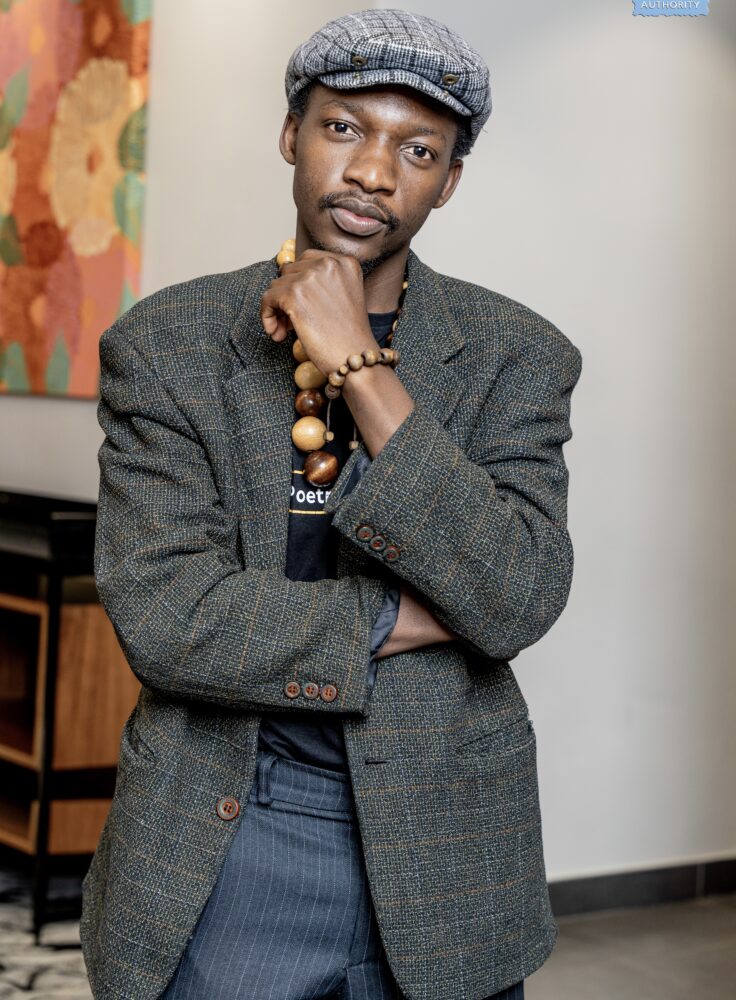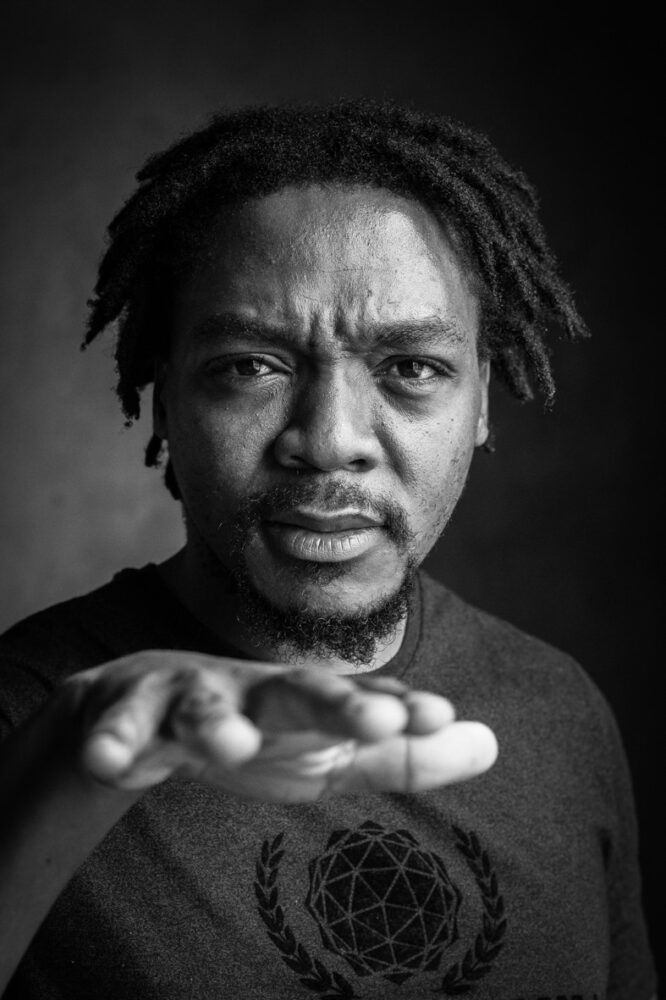The MTN Bushfire Festival in eSwatini, which included a poetry and acoustics showcase. (Umsamo we Culture)
Over and above audience development, market access and book sales for published poets, event organiser at Hear My Voice Ishmael Sibiya says travelling opens the door to cultural diplomacy.
“Travelling creates space for collaboration, exchange and co-creation. Poets who travel abroad, for instance, become ambassadors of South African art.”
Travelling locally, Sibiya adds, allows poets to reach new audiences and connect with different creative communities across provinces.
He shared these views during our interview after a panel discussion at a poetry event hosted by the Word N Sound Live Literature Company.
Taking place at the Goethe-Institut in Johannesburg last month, the panel, which included Sibiya, reflected on the role of travelling and collaborations for poets.
A recent initiative that promoted partnerships and travelling of poets was the Poetry & Acoustics Showcase at this year’s MTN Bushfire Festival in eSwatini. As a partnership between Hear My Voice and eSwatini-based Umsamo we Culture, Sibiya says, “The goal is to deepen artistic and cultural exchange between eSwatini and South Africa and to support the development of spoken-word poetry in both countries.”
Co-director and poet at Umsamo we Culture, Siyabonga Dlamini, shares Sibiya’s enthusiasm about this new partnership. The initiative, he adds, is rooted in the desire to expose poets to new markets while facilitating meaningful knowledge-sharing across borders.
As a poet and an organiser, Dlamini affirms such travelling experiences and exchanges have allowed him to understand the nuances of different audiences, sharpen his adaptability and gain a deeper appreciation for how context shapes art.
“These experiences have not only added layers to my writing but also broadened my perspective on how poetry can function as both mirror and bridge.
“Whether it’s learning new methods of curation from fellow creatives in South Africa or soaking in the layered histories of communities in eSwatini, travel has been my classroom,” he says.
This collaboration for the festival also saw South African poets Jonathan Lefenya and Nomashenge Dlamini participate in performances and cultural site visits, including a workshop hosted by jazz maestro Dr Nduduzo and Omagugu Makhathini.
Poet and musician Nomashenge Dlamini said, “Myself and the incredible Brother Jonathan were delegated to exchange with poets and artists in eSwatini — all this powered by Hear My Voice and Umsamo we Culture. They created a platform in which we could travel to eSwatini to meet and break bread with the likes of Qibho Intalektual and younger poets within the community.”
 Poet Nomashenge Dlamini.
Poet Nomashenge Dlamini.
She beams widely when talking about the grandeur of nature in King Mswati’s country. “In eSwatini the trees are the skyscrapers.
“The trees are abundant and ancient. They are incredibly tall like nothing I’ve ever seen.”
I asked Nomashenge how travelling had benefited her creative career over the years.
“Travelling insists on growth and, ironically, solidifies one’s ‘story’, even on the move. One learns to be still in the way one is, which ultimately becomes the signature of one’s writing and performance.”
Co-founder of Word N Sound Live Literature Company Thabiso Mohare shares similar sentiments. Popularly known as Afurakan when blazing the stage, Mohare says travelling exposes poets to new experiences, cultures, languages and ideas — they are going to be positively impacted in one way or another.
He further argues that, when one engages with poetry in different countries, there is confirmation of the importance of the spoken word and literature in society and as a tool for young people.
“You are reassured that you are not alone in your madness and, when you see the impact poetry has in other countries through the work other organisations do, that encourages you to come back home and do more even, though it’s difficult.”
 Poet Siyabonga Dlamini
Poet Siyabonga Dlamini
Funding challenges
One of the difficulties organisers face is sourcing funds for trips and other programmes.
Over the years, Sibiya says, at Hear My Voice they have been fortunate to work with like-minded partners such as the Delegation of Flanders in Southern Africa, the Embassy of the Kingdom of the Netherlands and the Embassy of Sweden.
“These and other entities have helped fund our core activities, including poetry exchanges, retreats and showcases. Some have also contracted us to curate poetry components for their own programmes.”
Like Hear My Voice, Word N Sound has also had its fair share of funding challenges in supporting poets. This Johannesburg-based company has been in the forefront of South African poetry for over 15 years and have funded most of their operational expenses from their own pockets.
Regarding funding for programmes, Mohare says it has been difficult, although they have had a few successes, especially with European funders.
“But, again, those are also cyclical, so you’re not always guaranteed to get the funding. I think, overall, funding remains a big challenge, especially consistent funding that goes beyond just programmes that the government or the market is excited about at that time.”
Despite this, Word N Sound has managed to support poets in seeing the world. Mohare tells me about the various international exchanges, with two programmes standing out for him.
One was Next Generation Speaks, a partnership between five organisations from four continents. The other was DExZA, a collaboration between Word N Sound and a German organisation called No Boundaries.
Sibiya shares Mohare’s frustration on the inconsistency and unpredictability of funders. He says, with every shift in a partner’s strategy or vision, funding can dry up, so developing innovative ways to raise money becomes necessary.
“We’ve had to adapt. We actively raise our own funds by offering poetry-focused services and curations to clients, using that income to support our own programming.
“It’s not easy — especially when external funding isn’t available —but it’s made us more resilient and self-sustaining.”
 Thabiso Mohare aka Afurakan. (Dirk Skiba)
Thabiso Mohare aka Afurakan. (Dirk Skiba)
Co-founded alongside Phomolo Sekamotho and MoAfrika Mokgathi, Hear My Voice has been relentlessly committed to the development and promotion of spoken-word poetry for almost a decade.
One initiative that has supported poets to travel has been the Hear My Voice Mobility Fund.
Launched in 2020 when lockdown restrictions started to ease, the fund was created to help South African poets participate in international literary festivals.
“Poets, and artists in general, are often invited to perform at festivals and book fairs, but they’re expected to cover their own travel costs, which can be a major barrier. This fund helps remove that obstacle,” Sibiya says.
Since its inception, the Mobility Fund has supported poets such as Xabiso Vili, Mak Manaka and Emmah Mabye, among others.
For wordsmiths, travel adds enormously to the growth of the skills, emotions and thoughts which inspire their work. But for such opportunities to be fulfilled, they require sustainable supportive structures.
Poetry organisations like Hear My Voice, Word N Sound, Umsamo we Culture, and many other hardworking formations, are playing a key role in being the wind beneath poets’ wings. If the African poetry industry is to soar, such partnerships and initiatives should be supported by audiences, funders and, especially, the government.